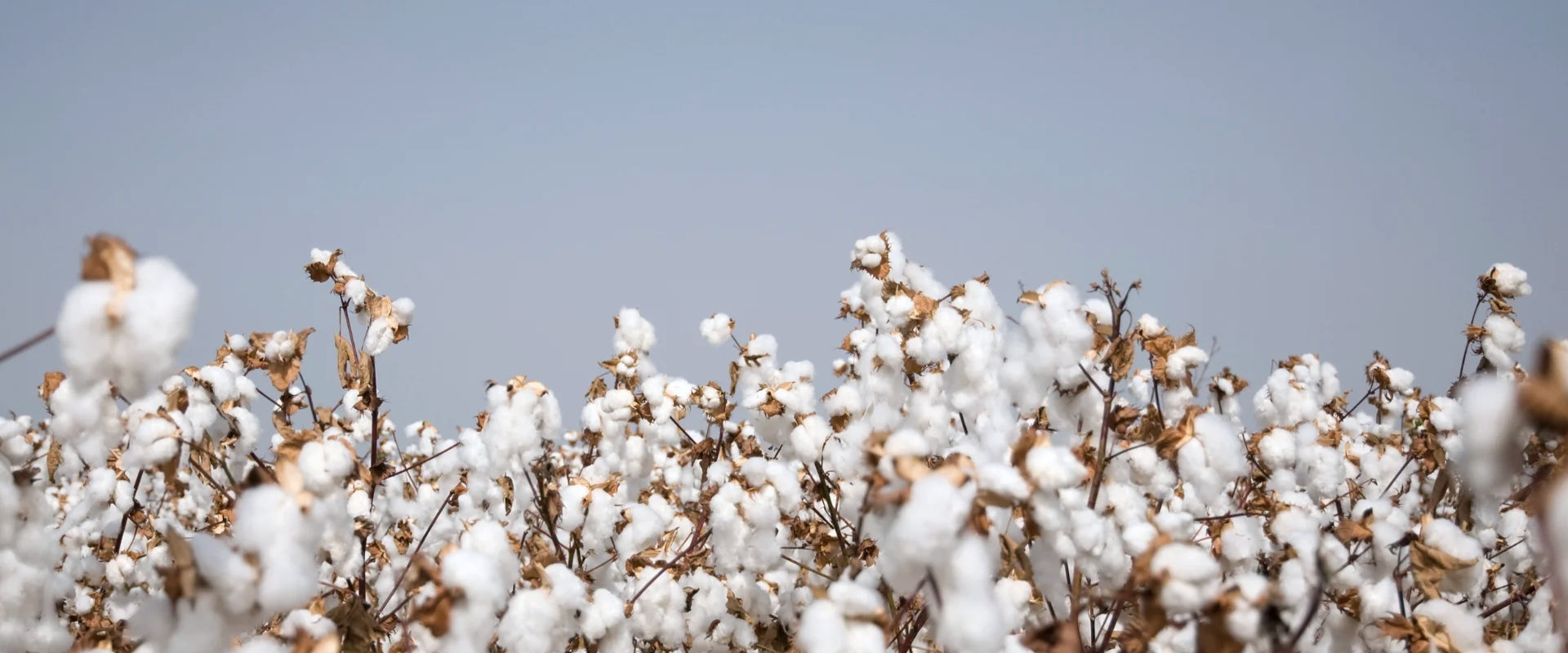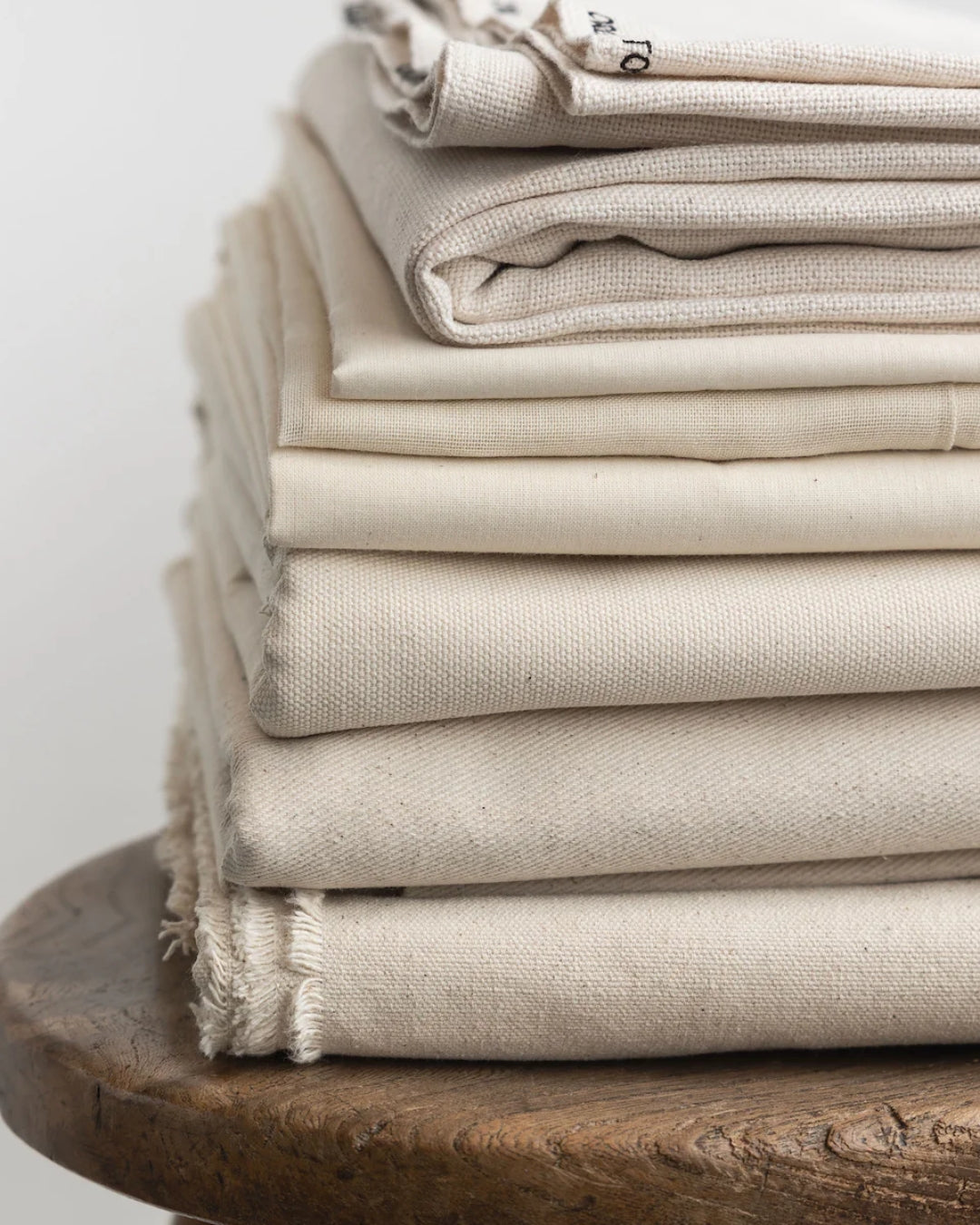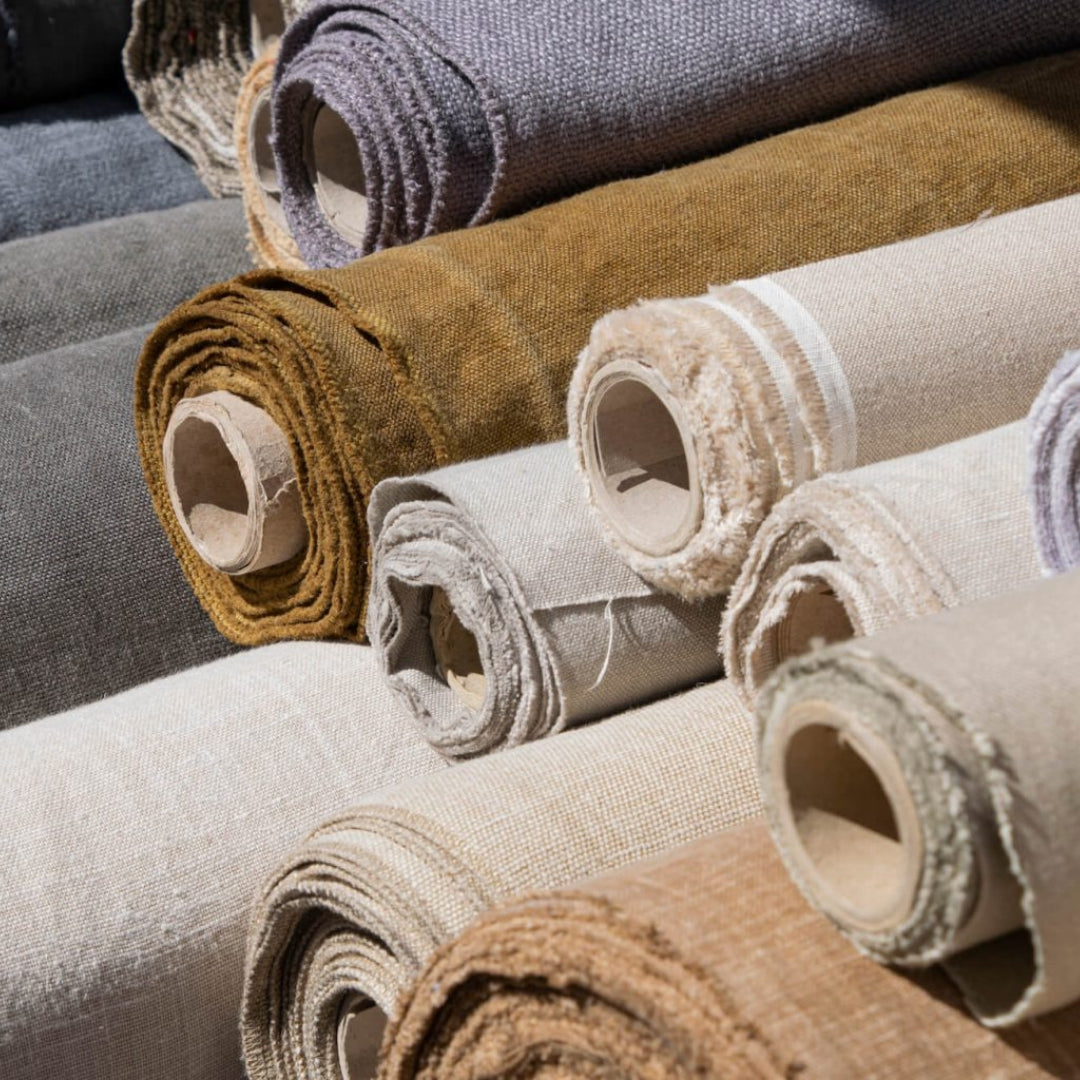Why Natural Fabrics?
In an age where sustainability is non-negotiable, our brand stands firm in its dedication to natural fabrics. But why make the change from synthetic fibres to natural? Let's delve deeper.

State of synthetic textiles:
Outside of the harmful production processes for synthetic fabrics, our everyday use of them is also negatively impacting the Earth.
Research by the Pew Charitable Trusts and SYSTEMIQ reveals that over 11 million metric tons of plastic, find their way into the Earth’s oceans annually. To put this into perspective, it's like having 12 million buffalo enter the ocean annually!
However, the gravity of this plastic pollution often goes unnoticed. Studies indicate that without intervention, there could be one pound of plastic for every three pounds of fish. While some argue that recycling old bottles into polyester for clothing is a solution, it's essential to recognize that polyester remains a form of plastic.
Moreover, every laundry cycle releases approximately 18 million synthetic microfibers into wastewater, as estimated by Environmental Science and Pollution Research (ESPR). These microfibers pervade water bodies globally, from household faucets to remote Arctic seawater. Shockingly, synthetic fibers constitute about 92 percent of microplastic pollution in Arctic water samples. In total, between 1,700 to 4,000 metric tons of synthetic microfibers infiltrate the environment annually, according to a joint study by The Nature Conservancy and the University of California, Santa Barbara.

Why you'll love natural fabrics:
1. KEEP COOL & COMFORTABLE
- BREATHABILITY: natural fabrics allow your skin to breathe, making them perfect for hot & humid weather. They wick moisture away from you body, keeping you cool and dry all day long. No sweat stains!
- SOFTNESS: natural fabrics just get better over time. With each wash natural fibres get softer and drape better.
2. DURABILITY & LONGEVITY
- LASTING QUALITY: Clothing made from natural fabrics tends to have a longer lifespan than synthetics. They can withstand frequent gentle washing and often just get better over time.
3. HYPOALLERGENIC & ANTI-BACTERIAL
- LESS IRRITATION: Natural fabrics are less likely to cause skin irritations and allergies compared to synthetic materials, which often contain chemicals and dyes that can be harsh on the skin.
- GENTLE FOR SENSITIVE SKIN: If you have sensitive skin or a skin conditions like eczema, natural fabrics can help lessen any discomfort and irritation.
- ANTI-BACTERIAL: Many natural fabrics have naturally occurring anti-bacterial and anti-fungal properties
4. ECO-FRIENDLY & SUSTAINABLE
- BIODEGRADABLE: Natural fabrics decompose naturally, reducing their impact on landfills and the environment.
- RENEWABLE RESOURCE: Many natural fabrics, like wool are made from renewable resources making them a fantastic sustainable choice
- NO MICROPLASTICS: Microplastics from washing clothing made from synthetic fabrics are the biggest pollutant in our oceans getting into our water supplies. Best way to avoid contributing to this is to only buy clothing made from 100% natural fabrics.
5. TEMPERATURE CONTROL
- WARM IN WINTER: Many natural fabrics such as wool, in particular, is known for its insulating properties, providing warmth without bulk. So is fantastic for keeping warm and cozy in winter.
- COOL IN SUMMER: Many natural fabrics work great for heat-regulation. Allowing air to circulate around your body, keeping you cool and dry in hot summer months.

The path to sustainable fashion isn't always straightforward; there may be detours along the way. However, as long as we strive to transition towards environmentally friendly products, progress is being made.
Image Sources: BUD Organic Club, 2024; Maake, 2024 ; Ray Stitch, 2024 ;
